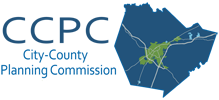Short-Term Rental Changes
Short-term rentals have many benefits in communities: economic contribution, hotel overflow, neighborhood reinvestment, and more. There are potential negative impacts as well. Short-term rentals do not have the same tax systems, infrastructure and safety requirements, planning involvement, or land costs as traditional hotels. While neighborhood reinvestment is beneficial in many instances, buying up a community’s housing stock for commercial gain has raised not just the costs of the investor-owned homes, but the neighboring ones as well. In some instances, this has created an untenable market for new prospective home-buyers. Another negative impact is coming at the cost of neighborhood character and quality of life of the residents in single-family areas that are generally afforded protection from commercial activities. While the positives are clear, the negative impacts can be hurtful to neighboring properties and their expected quality of life. As is common with most things that have rapid, meteoric rises in success, governments have been slow to adapt. As people have become familiarized with short term rentals, there have been a variety of ways this has evolved: roommates looking for a little income to help with rent, empty-nesters looking to cash-in on excess room that needs to be filled, families who see a means to help afford a vacation home, and investors who see an unfulfilled niche in an evolving market. With these different land use opportunities, governments and stakeholders are presented with challenges in how to make this work equitably within their communities.
To address these issues, the City County Planning Commission is proposing revisions to the Zoning Ordinance to address short-term rentals. These changes primarily include:
- Separation of Bed and Breakfast and Short-Term Rental regulations. Bed and Breakfast generally applies to owner occupied homes with rooms to rent. Short-Term rentals could mean absentee owner investor properties. Most all locations will require a Conditional Use Permit.
- Short Term Rentals and Bed and Breakfasts are allowed by right in most all commercial zones.
- Short-Term Rentals are prohibited in sewered (RS) single family residential and industrial zones, however Bed and Breakfasts may still be allowed with a conditional use permit in all single family residential zones.
- Making advertising without a license illegal.
- Streamlining permitting.
- Other minor specific use standard amendments.
By restricting short-term rentals in RS districts, the ordinance will help preserve the character and integrity of single-family areas across the county while leaving open plenty of investor opportunities. By separating short-term rental and bed and breakfast regulations, it will create a dual system that will provide different opportunities to different properties based on which specific use standards work for the owners, community, and property itself. By streamlining the permitting and enforcement process, the community should have regulations that are easy to comply with and easy to enforce.
Click this link to see our Short-Term Rental Informational Brochure that was created in order to help educate interested persons on the process and what needs to be done. The brochure also functions as a checklist and application for a STR.
Here is the Short-Term Rental Map that illustrates where each type of short-term rental can be located or is prohibited. The gray color is the only areas where all types of STR’s are prohibited. Most of this area is parks, industrial areas and water.
Below is a more detailed summary of proposed changes for Short-Term Rentals in the Zoning Ordinance. Click the title to open a markup of each chapter.
- Added Short-Term Rental (STR) as a new land use category in the Overnight Accommodation section (pg. 5-3).
- Currently, STRs (Airbnb, HomeAway, VRBO, etc.) are regulated under the Bed and Breakfast land use category (pg. 5-3).
- The new STR use will be permitted in AG, RR, R-E, RM, NB and OP-R zones with a CUP and allowed by right in GB, CB and HB zones (pg. 5-3).
- STRs are not permitted in RS (single family residential) zones (pg. 5-3).
- There are no changes to the Bed and Breakfast category relating to the zones in which such use is permitted by right or as a conditional use (pg. 5-3).
- The Bed and Breakfast category requires that the property be owner-occupied and the owner be present during times of occupancy in the AG, RR, R-E, RS and OP-R districts. An inn-keeper is required to be present during times of occupancy in all other zones. The maximum permitted rental period is seven days (pg. 5-19).
- STRs do not have to be owner-occupied and an inn keeper is not required to be present during times of occupancy. There is no maximum rental period for a STR (pg. 5-19 and 5-20).
- Added a new short-term rental license requirement for both the Bed and Breakfast and STR land use categories (pg. 5-19 and 5-20).
- The new licensing requirement will ensure that requirements of all local agencies are met. This includes the Planning Commission, Bowling Green and Warren County Building Departments, Bowling Green Office of Occupational Licensing and the Warren County Treasurer’s Office (pg. 5-19 and 5-20).
- The license number must be displayed for both a Bed and Breakfast and STR use if listed on an online platform (pg. 5-19 and 5-20).
- Updated Bed and Breakfast definitions to match language in Article 5 (pg. 8-3)
- Added the term and definition for short-term rental (pg. 8-13)
